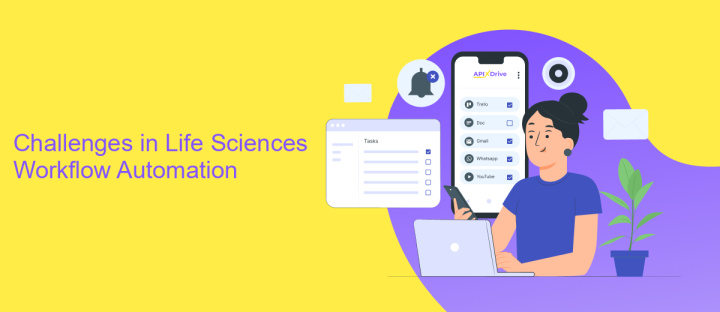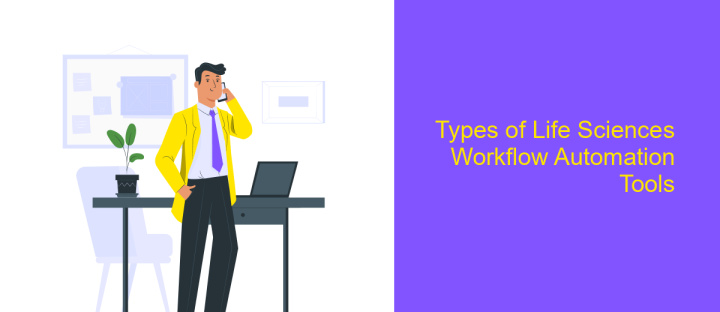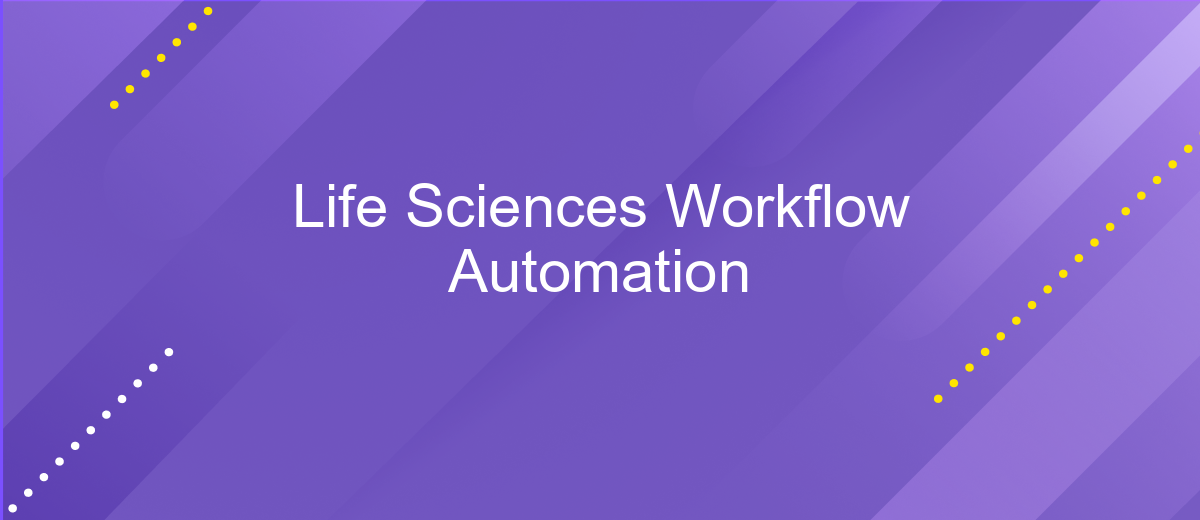Life Sciences Workflow Automation
In the rapidly evolving field of life sciences, workflow automation is revolutionizing research, diagnostics, and data management. By streamlining complex processes, automation enhances efficiency, accuracy, and reproducibility. This article explores the transformative impact of automation technologies on life sciences, highlighting key advancements, benefits, and future prospects. Discover how automation is reshaping the landscape of scientific discovery and healthcare innovation.
Introduction
Life Sciences Workflow Automation is revolutionizing the way research and development are conducted in the field of biology, medicine, and pharmaceuticals. By automating repetitive tasks, researchers can focus on more critical aspects of their work, thereby accelerating the pace of scientific discovery and innovation. This advancement is not just about speed; it also enhances accuracy and reproducibility, which are crucial for scientific integrity.
- Streamlined data collection and analysis
- Improved accuracy and reproducibility
- Enhanced collaboration and communication
- Reduction in human error
- Time and cost efficiency
Integrating various tools and platforms is essential for effective workflow automation. Services like ApiX-Drive facilitate seamless integration, enabling researchers to connect different applications without the need for extensive coding knowledge. By leveraging such services, laboratories can automate data transfers, synchronize workflows, and ensure that all systems work harmoniously together, ultimately leading to more efficient and productive research environments.
Challenges in Life Sciences Workflow Automation

Automating workflows in the life sciences sector presents multiple challenges, primarily due to the complexity and heterogeneity of data. Different research processes often require the integration of various software tools and databases, each with its own data formats and standards. This diversity can lead to significant difficulties in ensuring seamless data flow and interoperability between systems. Moreover, the need for stringent regulatory compliance adds another layer of complexity, as automated workflows must be meticulously validated to meet industry standards and avoid costly errors.
Another significant challenge is the customization and integration of automation tools to fit specific research needs. Many life sciences organizations struggle with configuring these tools to work harmoniously within their existing infrastructure. Services like ApiX-Drive can be instrumental in this regard, offering a user-friendly platform for integrating various applications and automating data transfer processes. However, the initial setup and ongoing maintenance of such integrations require specialized knowledge and continuous oversight, which can strain resources and hinder the full potential of workflow automation.
Benefits of Life Sciences Workflow Automation

Life Sciences Workflow Automation offers numerous advantages that streamline processes, reduce errors, and boost productivity. By automating repetitive tasks, organizations can focus more on research and innovation, ultimately accelerating scientific discoveries.
- Increased Efficiency: Automation reduces the time spent on manual tasks, allowing scientists to dedicate more time to critical research activities.
- Enhanced Accuracy: Automated workflows minimize human errors, ensuring more reliable and consistent results.
- Cost Savings: By reducing the need for manual labor, organizations can significantly cut down operational costs.
- Improved Data Management: Automated systems facilitate better data collection, storage, and analysis, leading to more informed decision-making.
- Scalability: Automation enables seamless scaling of processes to accommodate growing research demands without compromising quality.
Integrating various tools and systems is essential for effective workflow automation. Services like ApiX-Drive simplify this process by enabling seamless integration between different applications and platforms. This ensures smooth data flow and enhances overall operational efficiency, making it easier for organizations to manage their workflows and achieve their research goals.
Types of Life Sciences Workflow Automation Tools

Life Sciences Workflow Automation Tools are essential for enhancing efficiency and accuracy in research and clinical settings. These tools streamline complex processes, reduce human error, and allow scientists to focus on critical tasks rather than repetitive manual work.
There are various types of automation tools available, each designed to address specific needs within the life sciences field. These tools can range from data management systems to laboratory automation instruments, all aimed at optimizing workflow and ensuring reliable results.
- Laboratory Information Management Systems (LIMS)
- Electronic Lab Notebooks (ELNs)
- Robotic Process Automation (RPA)
- Data Analysis and Visualization Tools
- Integration Platforms like ApiX-Drive
Integration platforms such as ApiX-Drive play a crucial role in connecting various tools and systems, allowing seamless data transfer and workflow automation. By using such platforms, laboratories can enhance their productivity and ensure that all their systems work harmoniously together.
- Automate the work of an online store or landing
- Empower through integration
- Don't spend money on programmers and integrators
- Save time by automating routine tasks
Implementation of Life Sciences Workflow Automation
Implementing Life Sciences Workflow Automation involves a series of strategic steps designed to enhance efficiency and accuracy in research and development processes. The initial phase includes identifying repetitive and time-consuming tasks that can be automated. This requires a thorough analysis of existing workflows and pinpointing areas where automation can have the most significant impact. Following this, selecting appropriate software and tools that are tailored to life sciences is crucial. These tools should be capable of integrating seamlessly with existing systems and data sources to ensure a smooth transition.
Integration of various systems is a critical component of successful workflow automation. Utilizing services like ApiX-Drive can facilitate this process by enabling easy and efficient integration between different platforms and applications. ApiX-Drive offers a user-friendly interface and robust functionalities that allow for the automation of data transfers and synchronization between systems without the need for extensive coding knowledge. This not only speeds up the implementation process but also reduces the likelihood of errors, ensuring that the automated workflows are both reliable and effective.
FAQ
What is Life Sciences Workflow Automation?
How can automation benefit life sciences research?
What types of processes can be automated in life sciences?
How do I get started with automating my life sciences workflows?
Is it difficult to implement automation in life sciences?
Strive to take your business to the next level, achieve your goals faster and more efficiently? Apix-Drive is your reliable assistant for these tasks. An online service and application connector will help you automate key business processes and get rid of the routine. You and your employees will free up time for important core tasks. Try Apix-Drive features for free to see the effectiveness of the online connector for yourself.


